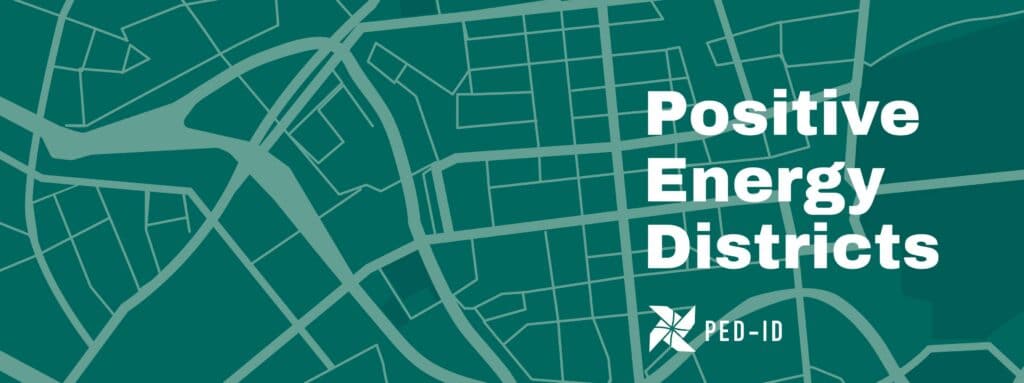Join JPI UE
Faq
FAQ
Please click here for the frequently asked questions we collected.
If you have an additional questions you are welcome to mail us at info@jpi-urbaneurope.eu

Stakeholder involvement is by far the most important element for a successful implementation of PEDs. It is crucial to address important stakeholders besides representatives of municipalities with PED requirements in early area development phase.
PED-ID will develop an innovative knowledge-based stakeholder process for PED areas and assessment methods to use information for the stakeholder process, by which decision-makers are provided at an early stage with improved information about how best to achieve Positive Energy District status, the options and the impacts. Data will be collected and calculated using an existing methodology adapted for appropriate stakeholders, who may then actively apply this data-driven participation process, consolidate their opinions and make data-based decisions.
This process will be tried and tested in three real EU Living Labs, all potential PED initiatives, with focus on the participation process and the identification of necessary data. By applying this process, the objective is to accelerate the rate of achieving Positive Energy District status and to accomplish the goal of 100 PED sites in Europe by 2025.
>> Holistic Stakeholder Model for early PEDs
A handbook with tasks necessary for creating a holistic technological, environmental and economic assessment of an area selected for PED development.
Download Holistic assessment method in early development phase of potential PED areas (pdf)
>> Visual concept for presentation of results of PED assessment
This document outlines the communication strategy for PED inception to be used by a consultant or PED facilitator, to communicate effectively the aspects involved in this type of project to a general audience.
Download Visual concept for presentation of results of PED assessment (pdf)
Supporting presentation on the Visual concept for presentation of results of PED assessment. Points out the appropriate visual concept approach and defines the essential elements that need to be communicated with stakeholders.
Download Visual concept for presentation of results of PED assessment, supporting presentation (pdf)
>> Criteria catalogue for Positive-Energy-Districts
The aim of this report is to define viable options and definitions for Positive Energy Districts. Based on the possible definitions, district developers can decide for themselves how the definition should be agreed upon for their own district.
Download Criteria catalogue for Positive-Energy-Districts (pdf)
>> PED agreement model for cities and municipalities
The purpose of this agreement model is to detail terms & responsibilities concerning the several aspects involved in a PED project – thus being an instrument for quality assurance to all stakeholders involved.
Download PED agreement model for cities and municipalities (pdf)
>> Project videos
Video 1
Video 2
Start/running period: 01.01.21 / 18 months
Applicant: e7 Energie Markt Analyse GmbH
Partners: White Arkitekter AB, Sustainable Innovation AB, e7 Energy Markt Analyse GmbH, SEVEn, Energy Efficiency Center, z.ú., Czech Technical University in Prague, Faculty of Civil Engineering
Project coordinator: Camilla Rampinelli, e7 Energy Markt Analyse GmbH, camilla.rampinelli@e-sieben.at